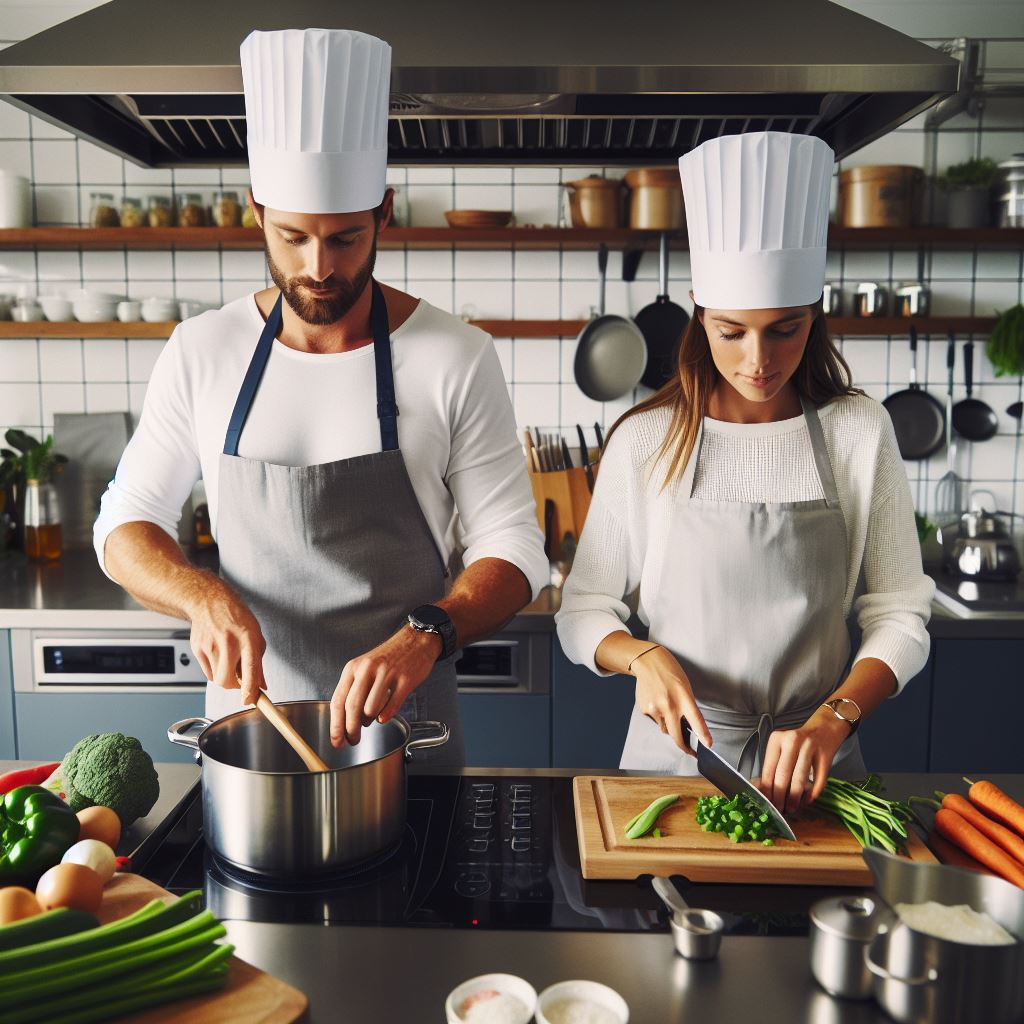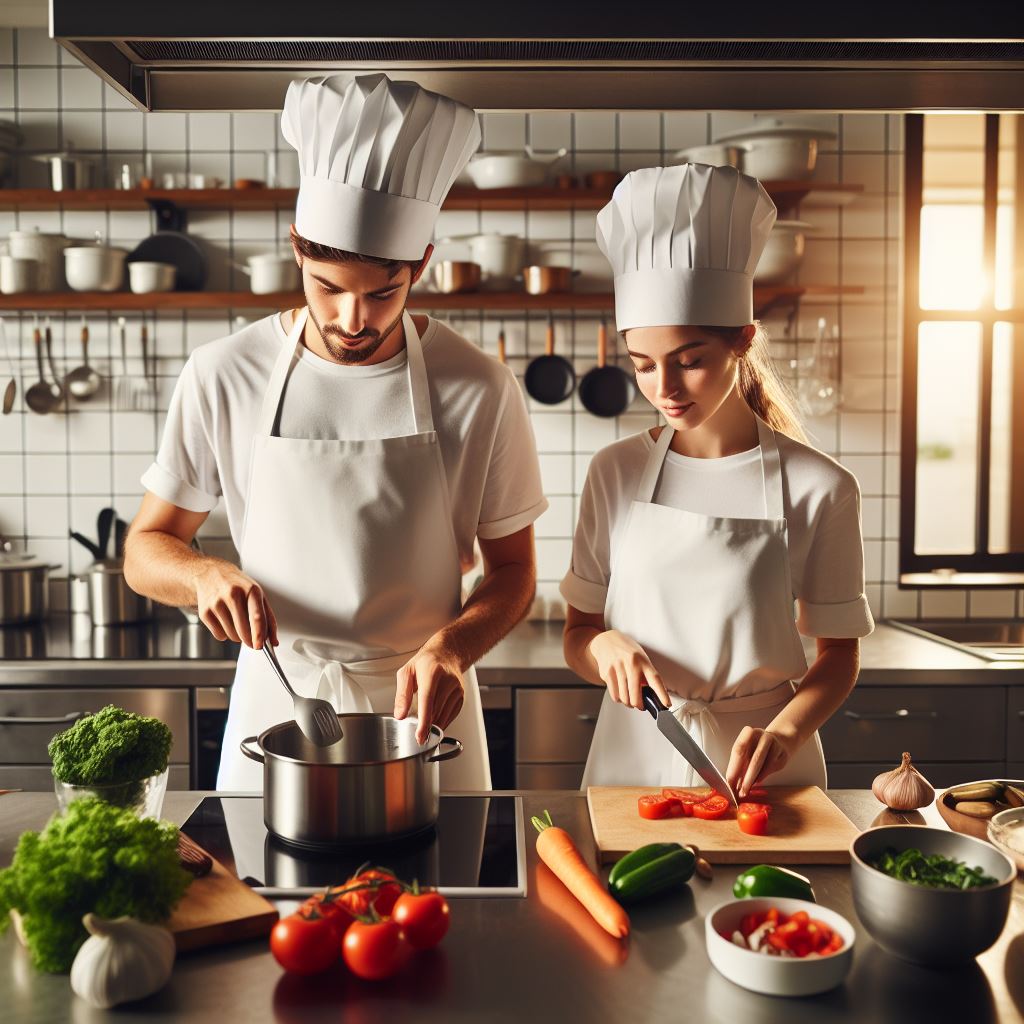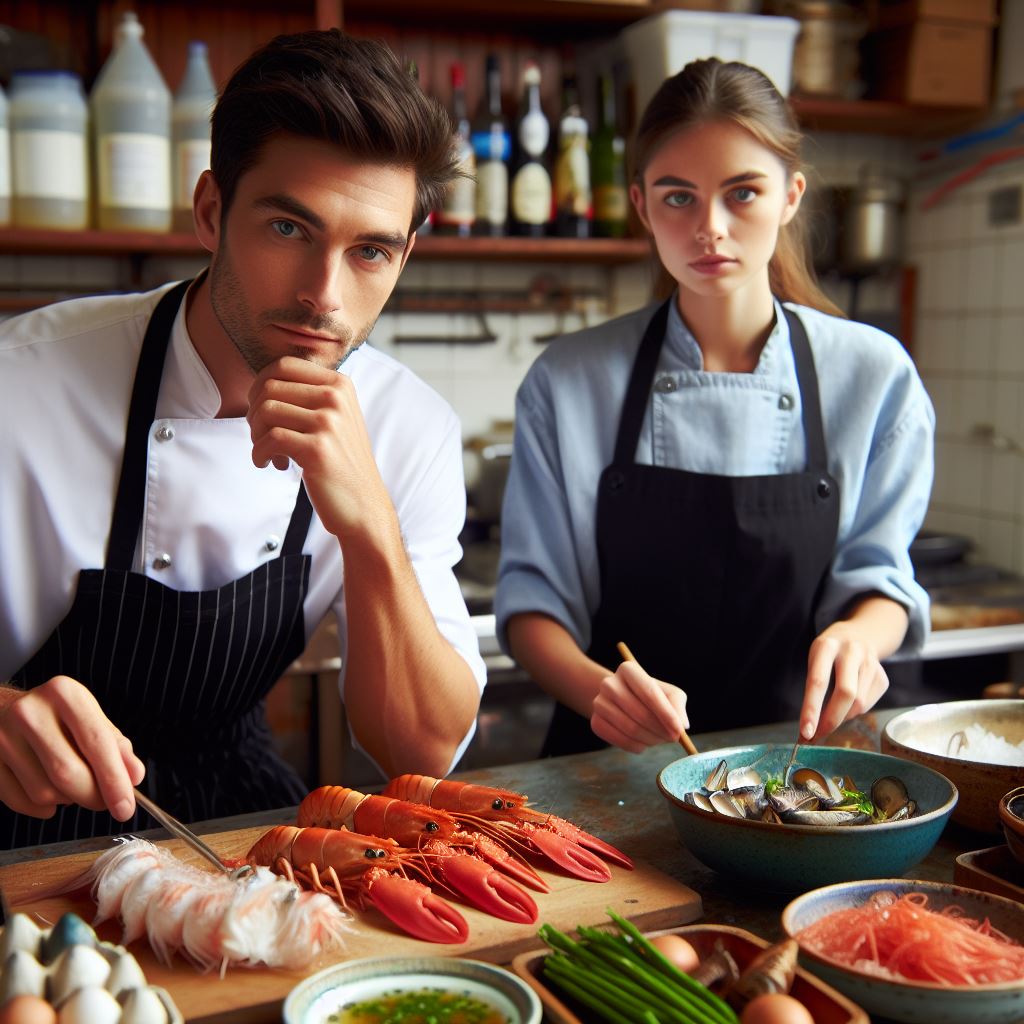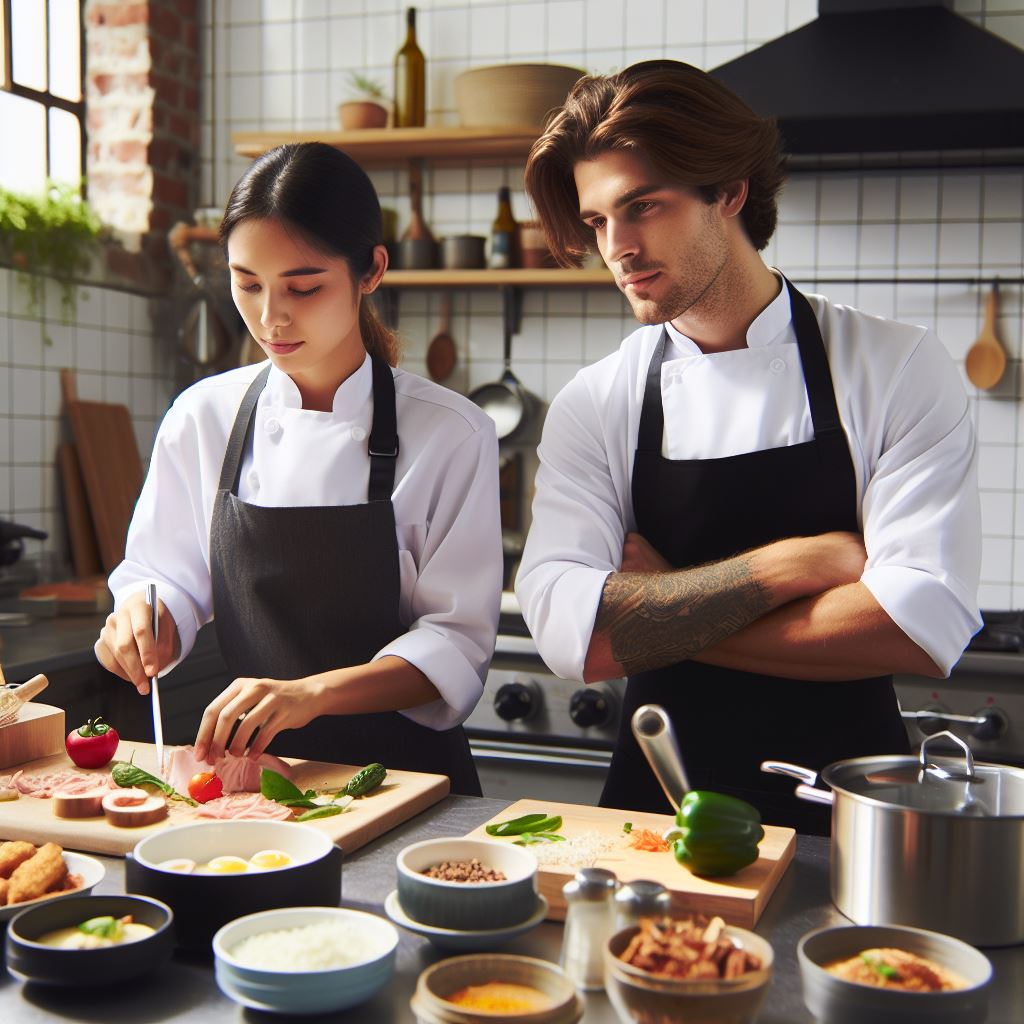Introduction
Australian cooking schools are highly regarded in the culinary industry.
Culinary education holds great importance in developing skills and knowledge.
The purpose of this blog post is to provide a comprehensive guide to Australian cooking schools.
Overview of Australian cooking schools
Australian cooking schools have gained a reputation for their excellence and innovation in the culinary industry. These schools offer a wide range of programs and courses for aspiring chefs and home cooks alike.
Importance of culinary education
Culinary education plays a crucial role in shaping the skills and knowledge of individuals in the field of cooking. It provides them with a solid foundation and the necessary techniques to excel in the culinary world.
Purpose of the blog post
In this blog post, we aim to provide a complete guide to Australian cooking schools. We will explore the different types of schools available and their unique features.
We will highlight the benefits of pursuing culinary education and how it can open doors to various career opportunities.
By shedding light on these aspects, we hope to assist individuals in making informed decisions about their culinary education journey.
Whether it’s enrolling in a renowned cooking school to become a professional chef or simply enhancing cooking skills, this blog post will serve as a valuable resource.
Stay tuned as we delve into the intricacies of Australian cooking schools, revealing the secrets and strengths that make them so highly sought after within the culinary world.
Types of Australian cooking schools
Professional culinary schools
- Overview of accredited institutions
- Programs offered (diploma, certificate, degree)
- Specializations available (pastry, culinary arts, hospitality management)
Recreational cooking schools
- Target audience (hobbyists, home cooks)
- Classes offered (regional cuisines, specific techniques)
- Benefits of attending recreational cooking schools
When it comes to Australian cooking schools, there are two main types to consider: professional culinary schools and recreational cooking schools.
Professional culinary schools
Professional culinary schools are institutions that focus on training individuals to become professional chefs and culinary experts. These schools are accredited and provide comprehensive programs for aspiring chefs.
- These schools are often recognized and accredited by culinary associations and organizations in Australia. They meet certain educational standards and provide high-quality training.
- Professional culinary schools offer various programs, including diplomas, certificates, and degrees. These programs provide a structured curriculum to develop essential culinary skills.
- Specializations offered by professional culinary schools include pastry arts, culinary arts, and hospitality management. Students can choose their area of interest and receive specialized training in their chosen field.
Recreational cooking schools
Recreational cooking schools, on the other hand, cater to a different audience. They are primarily focused on providing cooking classes for hobbyists and home cooks who want to improve their culinary skills and knowledge.
- The target audience of recreational cooking schools includes individuals who have a passion for cooking but do not necessarily want to pursue a professional career in the culinary industry.
- These schools offer a wide range of classes, including regional cuisines and specific cooking techniques. Students can learn how to prepare dishes from different cuisines or master specific cooking methods.
- Attending a recreational cooking school has several benefits. It allows individuals to enhance their cooking skills, learn new recipes, and discover different culinary traditions.
It can be a fun and social activity, providing an opportunity to meet like-minded individuals with a shared passion for cooking.
Basically, Australian cooking schools come in different types to cater to the diverse needs and interests of individuals.
Whether one is looking to become a professional chef or simply wants to improve their cooking skills as a hobbyist, there are schools available to fulfill those aspirations.
Read: Navigating COVID-19: Travel Agents’ Advice
Popular Australian cooking schools
Sydney Cooking School
- Located in Sydney, this cooking school offers state-of-the-art facilities for its students.
- Courses and workshops range from beginner-friendly classes to specialized culinary techniques.
- The school boasts notable chefs and instructors, providing expert guidance in the culinary arts.
Le Cordon Bleu Australia
- With a rich history and global prestige, Le Cordon Bleu is one of the top culinary schools.
- They offer a wide range of programs and degrees, allowing students to specialize in various areas.
- Many successful alumni have launched their culinary careers after graduating from Le Cordon Bleu.
TAFE NSW Hospitality and Tourism
- TAFE NSW is accredited and recognized by the industry for its high-quality culinary programs.
- From professional cookery to patisserie, students can choose from a diverse range of cooking programs.
- TAFE NSW provides valuable internship and job placement opportunities for its graduates.
Read: Travel Insurance Tips from Expert Agents
Delve into the Subject: Aussie Hotel Management: Salary Insights
Factors to Consider When Choosing a Cooking School
Reputation and Accreditation
- Look for a cooking school with a strong reputation and good reviews from past students.
- Check if the school is accredited by reputable culinary organizations or associations.
- Accreditation ensures the school meets certain standards and provides quality culinary education.
Curriculum and Program Structure
- Evaluate the cooking school’s curriculum and program structure to ensure it aligns with your goals.
- Check if the school offers a diverse range of culinary courses, including specialized programs.
- Consider the duration of the program to ensure it fits your schedule and learning objectives.
Facilities and Resources
- Visit the cooking school to assess the quality and adequacy of their facilities and equipment.
- Look for state-of-the-art kitchens, well-equipped classrooms, and a variety of cooking tools.
- Check if the school provides access to industry-standard ingredients and resources for practical learning.
Cost and Financial Options
- Determine your budget and compare the tuition fees of different cooking schools.
- Inquire about scholarships, grants, or financial aid options available to reduce the financial burden.
- Consider the overall value for money considering the reputation, curriculum, and facilities offered.
Alumni Network and Career Support
- Research the cooking school’s alumni network and their success in the culinary industry.
- A strong and supportive alumni network can provide valuable connections and job opportunities.
- Inquire about career placement services or internships offered by the school to help kickstart your culinary career.
Choosing the right cooking school is crucial in shaping your culinary journey and career. Considering the following factors will help you make an informed decision
Reputation and Accreditation
Reputation and accreditation play major roles in determining the prestige and quality of a cooking school. A well-established school with positive feedback from former students indicates a strong reputation within the culinary community.
Accreditation ensures that the cooking school adheres to industry standards and provides a reputable culinary education.
Your Personalized Career Strategy
Unlock your potential with tailored career consulting. Get clear, actionable steps designed for your success. Start now!
Get StartedCurriculum and Program Structure
The curriculum and program structure should align with your specific interests and career goals. Look for a cooking school that offers a well-rounded curriculum, including foundational culinary techniques, specialized courses, and practical experiences.
Consider the duration of the program to ensure it fits your schedule and allows enough time for comprehensive learning.
Facilities and Resources
Evaluate the facilities and resources of the cooking school. A modern and well-equipped kitchen is essential for hands-on training.
Check if the school provides access to industry-standard ingredients and resources for a realistic learning experience. The availability of diverse cooking tools and equipment also enhances the learning process.
Cost and Financial Options
Consider your financial situation when selecting a cooking school. Compare the tuition fees of different schools and determine a budget that suits your affordability.
Inquire about scholarships, grants, or financial aid options that can alleviate the financial burden.
Alumni Network and Career Support
Examine the school’s alumni network and career support services. A strong network of successful graduates can provide mentorship, job opportunities, and industry connections.
Investigate if the school offers career placement services or internships to help you transition into the culinary industry.
Choosing the right cooking school involves considering factors such as reputation, accreditation, curriculum, facilities, cost, and alumni support.
By carefully evaluating these aspects, you can select a cooking school that best suits your needs and sets you up for a successful culinary career.
Read: Top 10 Destinations Aussie Agents Love

Gain More Insights: Guide’s Guide: Handling Difficult Tourists
Learn More: Cooking Techniques Every Aussie Chef Must Know
Success stories and testimonials from graduates
Australian cooking schools have had a significant impact on the careers of many culinary professionals. Their success stories and testimonials serve as an inspiration for aspiring chefs and highlight the quality of education provided by these institutions.
Let’s take a closer look at some of these remarkable individuals.
Interviews or profiles of successful culinary professionals
- Interview with Simon Williams, a renowned chef who graduated from the Melbourne Culinary School.
- Profile of Emma Thompson, an award-winning pastry chef trained at the Sydney Cooking Institute.
- Insights from Mark Roberts, a successful restaurateur who attributes his success to the skills learned at the Brisbane Cooking Academy.
- An interview with Rachel Lewis, a celebrity chef who honed her talents at the Adelaide Culinary Institute.
- Profile of Anthony Green, a prominent chef who graduated from the Perth Cooking School and now runs his own cooking show.
Experiences and achievements of past students
- John Harrison, a former student at the Gold Coast Cooking Academy, opened his own five-star restaurant.
- Alice Johnson, after completing her studies at the Canberra Culinary College, won a national cooking competition.
- Michael Turner, a graduate from the Darwin Cooking Institute, achieved a Michelin star within three years of graduating.
- Mary Roberts, trained at the Hobart Cooking School, now works as a head chef at a luxury resort.
- Alex Tucker, a pastry chef trained at the Adelaide Culinary Institute, was recently featured in a popular food magazine.
Impact of cooking school on career progression
- After graduating from the Sydney Cooking Institute, Sarah Adams quickly climbed the ranks to become a sous chef at a prestigious restaurant.
- Tom Brown, with a diploma from the Melbourne Culinary School, started his own catering business, which now serves high-profile clients.
- Jessica Thompson’s experience at the Brisbane Cooking Academy helped her secure a position as the executive chef at a renowned hotel.
- David Davis, who completed his studies at the Perth Cooking School, saw a significant increase in job opportunities and salary offers.
- Lisa Evans, a graduate of the Adelaide Culinary Institute, now teaches cooking classes and has published her own cookbook.
These success stories and testimonials highlight the positive impact of Australian cooking schools on the culinary industry.
Graduates attribute their achievements, career progression, and personal growth to the comprehensive training, experienced instructors, and hands-on learning experiences provided by these institutions.
Aspiring chefs can draw inspiration and motivation from these stories, knowing that attending a reputable cooking school in Australia can be a stepping stone towards a successful and fulfilling culinary career.
Read: Why Use a Travel Agent for Business Trips?
See Related Content: Safety Tips Every Tour Guide Should Know
Gain More Insights: Hospitality Law: A Guide for Managers
Stand Out with a Resume That Gets Results
Your career is worth more than a generic template. Let us craft a resume and cover letter that showcase your unique strengths and help you secure that dream job.
Get HiredConclusion
Australian cooking schools provide diverse opportunities for culinary enthusiasts to refine skills and passion. They offer comprehensive culinary education, covering traditional techniques to innovative trends.
Graduates gain knowledge, practical experience, and appreciation for Australian cuisine.
Attending a cooking school isn’t just about recipes; it’s embracing culinary culture. Australia’s vibrant food scene and diverse culinary traditions make it an ideal destination.
Schools cater to beginners and seasoned chefs. Students develop practical skills in real kitchen settings.
The supportive environment fosters creativity and collaboration.
Graduates emerge with confidence, ready for culinary careers. Experiences gained are invaluable assets in the culinary world.
Skills acquired open doors in the ever-evolving culinary industry.
Aspiring chefs and food enthusiasts find inspiration and guidance. Australian cooking schools are pillars of innovation and culinary mastery. They shape the future of Australian cuisine.




